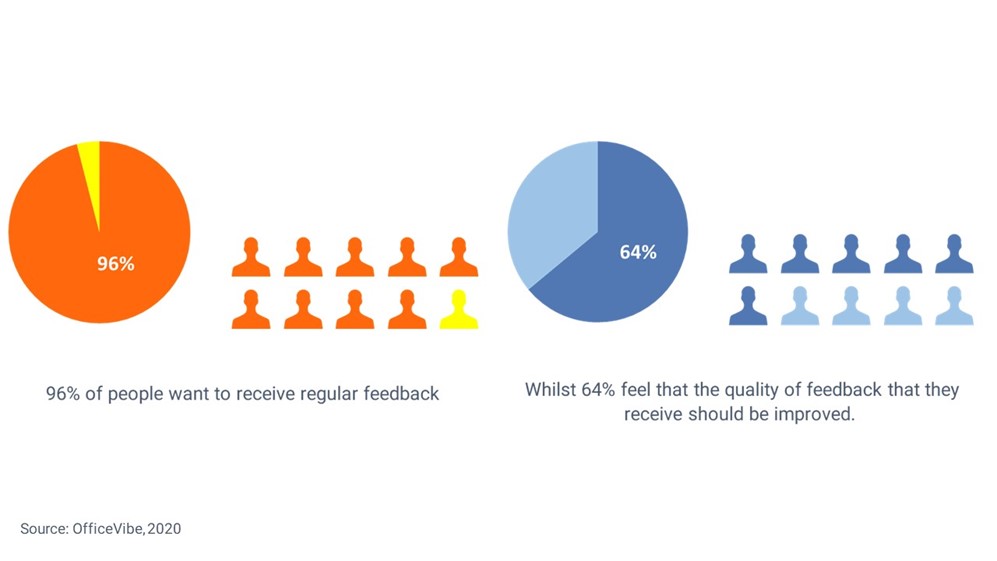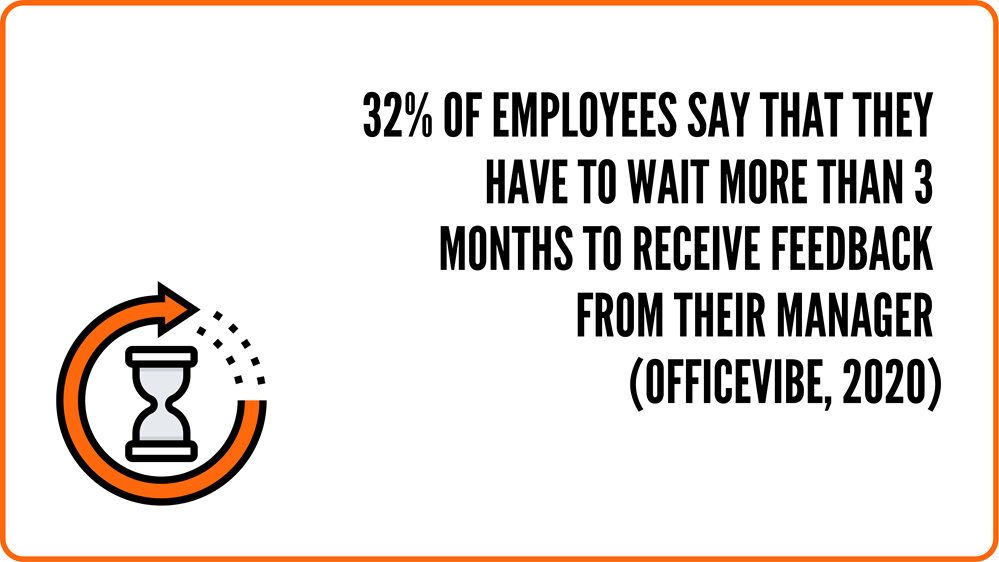Five Tips for Giving Effective Feedback
Inform, Engage and Inspire your Team
It is really important for people to know how they are doing in the workplace and research confirms that performance feedback is one of the best ways to help employees to learn, develop and reach their best potential. However, it’s not enough to simply give feedback to your team members - that feedback needs to be meaningful and delivered effectively in order to have the desired impact.

Five tips for giving effective feedback in order to improve performance
1. Remember WHY you’re giving feedback
Feedback is not about telling people what they are doing wrong or how they could do it better. It is about providing useful information on what they are doing well as well as what is not working so well and then helping them to identify steps / actions to improve their performance. If we do not know where we are doing well and where we are not doing so well, how can we hope to learn and improve? By focusing on ‘why’ you’re giving feedback, your input is more likely to motivate and inspire them to take the necessary steps to achieve their objective(s).
2. Focus on the behaviour, not the person
If feedback is focused on an individual such as “you have a bad attitude” then it will inevitably be met with defensiveness and it will not have the desired impact (i.e. to help them to change their behaviour). In order for performance feedback to be useful, it should be based on their behaviour and how that behaviour has impacted others. Rather than telling them that they have a bad attitude, focus on the specific behaviour that you want to address. For example, explain that their behaviour during team meetings including talking over colleagues and making snide remarks has upset a number of people and is affecting the ability of the team to work together as a group.
3. Make it timely
Feedback shouldn’t be saved for an annual appraisal by which time both parties have inevitably forgotten what happened. It should be timely and given as close as possible to the event so that there is a greater opportunity to impact behaviour. The sooner that feedback is given, the sooner that they can take on board any suggestions and act on the feedback.

4. Put yourself in their shoes
Empathy is a crucial leadership skill and in the context of feedback it allows you to frame your feedback conversation in a way that best ensures the other person is able to understand, absorb and apply your feedback. Bear in mind that your feedback is your perspective of events and theirs may be completely different, so put yourself in their shoes and consider how they are going to react / respond to hearing your feedback and then think about how you can help them to understand your message and take it on board. If the aim is to help individuals to learn, grow and develop through feedback, then delivering that feedback in a way which demonstrates that genuine desire to help is more likely to make the conversation a useful and productive one.
5. Be willing to receive and act on feedback yourself
If we acknowledge and recognise the benefits that performance feedback can bring, we also need to be willing to receive feedback ourselves. Encourage and promote an environment in which learning and development are championed, in which people are able to acknowledge and take responsibility for their mistakes and in which regular ongoing feedback conversations take place at all levels in the organisation. Demonstrate your willingness by asking questions designed to gain useful feedback, for example, at the end of a meeting that you have chaired ask for suggestions on how the meeting could be improved next time or what worked well during the meeting. When receiving feedback, make sure that you listen carefully and show the other person that you are giving them your full attention. Thank them for their candour and if necessary, take time to reflect on their comments and decide what action you want to take as a result.
One of the speakers on our LEAD™ program reminds us that learning is about being better today than we were yesterday, and by giving (and receiving) constructive, specific, timely and useful feedback, people can use the information provided to constantly improve and strive to be better and achieve their full potential.
If you'd like to learn more about giving effective feedback and improving your leadership skills, please contact us here to discuss how our online or in-person courses and programs can help.
Alternatively you can learn more here about our online course, Giving Effective Feedback to Improve Performance on our QuoLux™ Leadership Centre, and try a sample of it below.
Click here to access a free sample of the course.
Keep up-to-date on the latest leadership and management tips by signing up to our weekly blog here